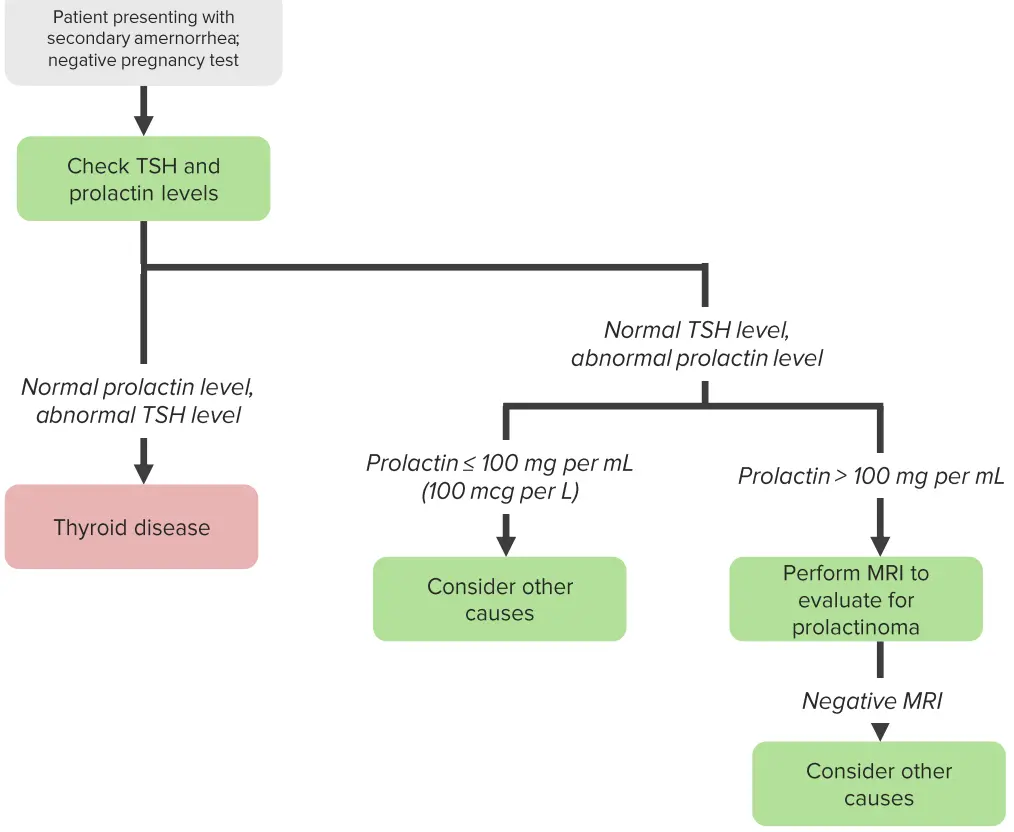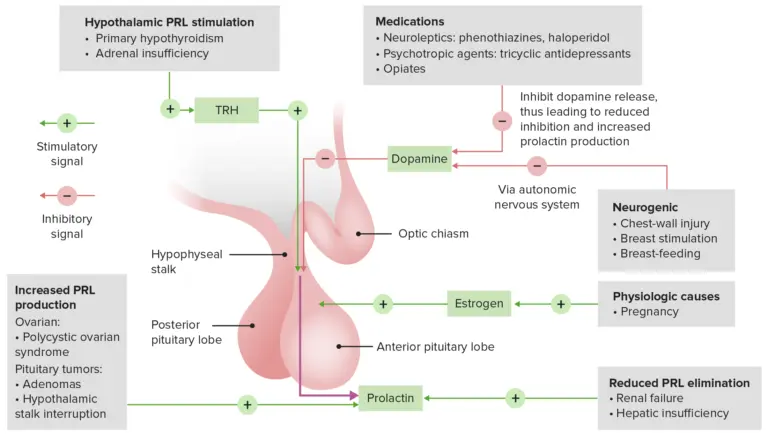Can Hyperprolactinemia be Cured?
Sometimes
Management involves controlling prolactin levels and addressing the underlying cause; outcomes depend on the specific cause and response to treatment

What is Hyperprolactinemia?
Hyperprolactinemia is an elevated level of prolactin, a hormone that stimulates milk production. It can occur due to various factors, including pituitary tumors. Symptoms may include irregular menstrual periods and breast milk production in non-pregnant individuals. Treatment involves addressing the underlying cause, often with medications to lower prolactin levels.

Clinical Aspects

Characteristics
Elevated levels of prolactin, a hormone that stimulates milk production in the breast

Symptoms
Irregular menstrual periods, breast milk production in non-pregnant individuals, infertility

Diagnosis
Clinical evaluation, hormone tests, imaging

Prognosis
Variable, depends on the underlying cause

Complications
Menstrual irregularities, potential for fertility issues
Etiology and Treatment

Causes
Prolactin-secreting pituitary tumors, certain medications, hypothalamus dysfunction

Treatments
Medications to lower prolactin levels, treatment of the underlying cause (if applicable)

Prevention
Medications to lower prolactin levels, treatment of the underlying cause (if applicable)
Public Health and Patient Perspectives

Epidemiology
Common, often due to pituitary adenomas

Patient Perspectives
Management based on the underlying cause
This information is for general understanding and is not a substitute for professional medical advice. Always consult with healthcare providers for accurate and personalized information related to your health.
Share: